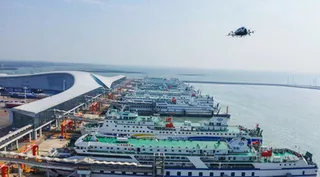UniSA purchases Pacific Simulators ProJet FTD
Contact Our Team
For more information about how Halldale can add value to your marketing and promotional campaigns or to discuss event exhibitor and sponsorship opportunities, contact our team to find out more
The Americas -
holly.foster@halldale.com
Rest of World -
jeremy@halldale.com

New Zealand‐based Pacific Simulators is to provide the University of South Australia (UniSA) with a ProJet Flight Training Device (FTD).
The Pacific Simulators ProJet PS Series device is a fixed‐base, fully enclosed flight training simulator modelled on a modern narrow‐body jet airliner and can train students and pilots on the Boeing 737 or the Airbus A320.
The company has supplied a total of five MCC certified devices to the industry since the new Part 61 MCC legislation was introduced just over two years ago. The MCC Certificate is Australia’s answer to the ripple‐effect of the Colgan air disaster in New York in 2010.
While the FAA in the US chose to adopt the 1500-hour rule, the Civil Aviation Safety Authority in Australia CASA decided on a slightly different approach with more specific training focused around multi‐crew operations. Pilots must now complete an MCC course before they are eligible to gain their ATPL.
Professor Duncan Campbell, Head of Engineering at UniSA, is looking forward to expanding the campus’s aviation programme to offer MCC. “We see great value in the MCC programme and over the last two years we’ve obviously seen a growing demand for the course across the country as more and more new pilots require this qualification.
“Pacific Simulators were the natural choice as a supplier. They were the first Training Device Manufacturer to have a device certified specifically for MCC in Australia. They now have a proven track record and their products are not only cost‐effective, but provide an extremely high level of fidelity.”
Iain Pero, Director of Sales and Marketing for Pacific Simulators, is excited about the growth in the companies training products. “After starting out life building entertainment simulators, we have spent considerable time and resources over the last 3‐4 years moving into the training market. Achieving another sale to another aviation university is not only exciting, but proves we’re on theright track.
“We expect to deliver to UniSA in December and have it certified and ready for operations by the beginning of the first semester in the New Year. We will then have a strong network of MCC approved devices in Sydney, Brisbane, Adelaide and Perth, with Melbourne expected to come online by Q2 2018. This will complete our goal of providing nationwide coverage for pilots and airlines around Australia.”


